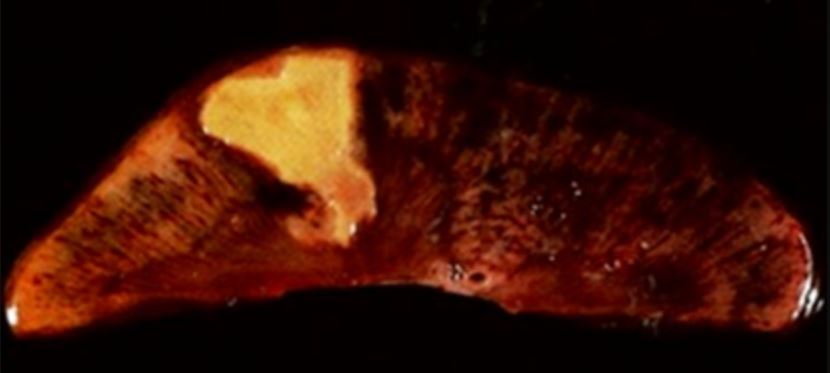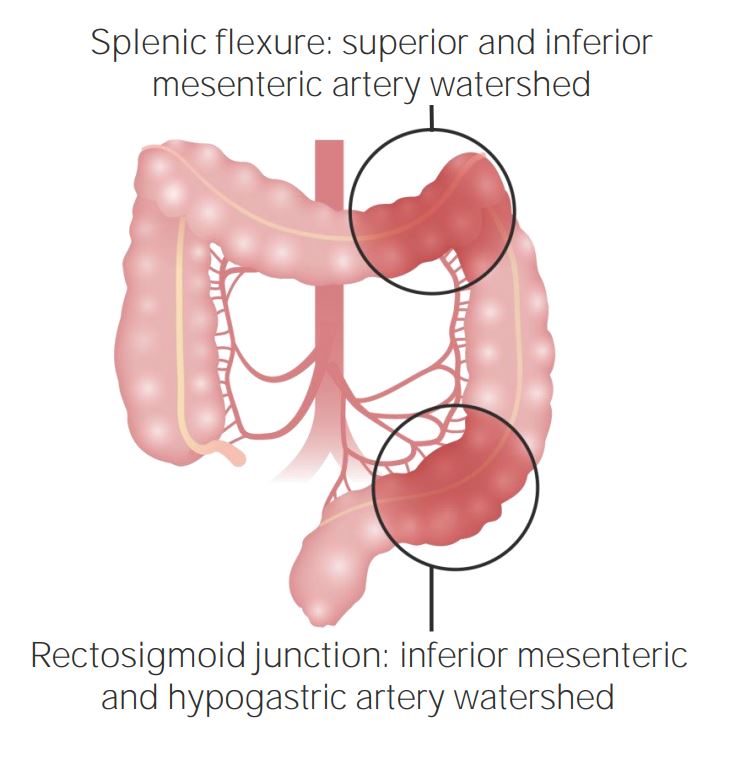Playlist
Show Playlist
Hide Playlist
Infectious Agents – Etiologies of Cellular Injury
-
Slides Cellular Pathology Etiologies of Injury.pdf
-
Download Lecture Overview
00:01 So in infectious disease you can have direct injury. 00:06 So viral cytolysis, meaning the virus gets into a cell proliferates takes over the cellular machinery for making proteins and nucleic acids and DNA and then it ruptures the cell as part of becoming as part of the infection process. 00:23 So direct injury that way and bacteria can make exotoxins for example, that will be also directly toxic to various cells, you can get direct injury in infection. 00:35 You can also get immune-mediated injury secondary to infection. 00:39 So the innate immune system, neutrophils when they recognize a very aggressive pocket of bacteria, it's a life-and-death battle in that little area and they can release so many toxic mediators intended to kill the bacteria that you also kill the tissue and that leads to an abscess. 01:01 Basically a pus pocket and it's completely destructive. 01:05 So it's not just the bacteria but it can also be the immune response to bacteria that can lead to cell injury. 01:12 Killing of infected cells. 01:14 We've talked about this previously, but for example Hepatitis B, when it gets into the hepatocyte, it actually is not particularly a lytic infection. 01:25 You can live forever with hepatitis B in your liver cells. 01:29 And in fact, about ten to twenty percent of the population, who are chronic carriers of hepatitis B do exactly that and they live happily ever after together The hepatitis, the inflammation associated with a virus occurs when the immune system recognizes an infected cell. 01:45 And when that happens, that's when you get the damage. 01:49 So the immune system can be the source of injury. 01:53 And septic shock is just another example, we will come back to that in a subsequent talk. 01:57 But basically septic shock is the result of gram-negative bacteria and some gram-positive bacteria, who have a cell wall component that activates macrophages. 02:09 And other elements of the immune system so aggressively that patients develop a cytokine storm, too many mediators that can cause cell and tissue and host death and that's septic shock. 02:27 Another mechanism by which infections can cause injury is transformation and a number of the infectious agents, as we will talk about, when we talk about malignancy can induce transformation, can induce genetic changes in a cell that will allow that cell to proliferate and become a cancer. 02:49 So Epstein-Barr virus, can be a predecessor, can be a precursor driver for B-cell lymphoma. 02:57 And he'll go back to pylori and many of the the mediators that it produces can be a cause of gastric carcinoma. 03:07 So infections can get you a variety of different ways. 03:11 And with that we've kind of summarized a lot of the ideologies of cell injury.
About the Lecture
The lecture Infectious Agents – Etiologies of Cellular Injury by Richard Mitchell, MD, PhD is from the course Cellular Injury.
Included Quiz Questions
Which of the following microorganisms increases the risk for B-cell lymphoma?
- Epstein-Barr virus
- Human papilloma virus
- Cytomegalovirus
- Hepatitis B virus
- Helicobacter pylori
Which of the following is involved in the pathophysiology of septic shock?
- Immune-mediated injury
- Viral nucleic acids
- Bacterial exotoxins
- Bacterial nuclei
- Bacterial cell membranes
Customer reviews
5,0 of 5 stars
| 5 Stars |
|
5 |
| 4 Stars |
|
0 |
| 3 Stars |
|
0 |
| 2 Stars |
|
0 |
| 1 Star |
|
0 |





